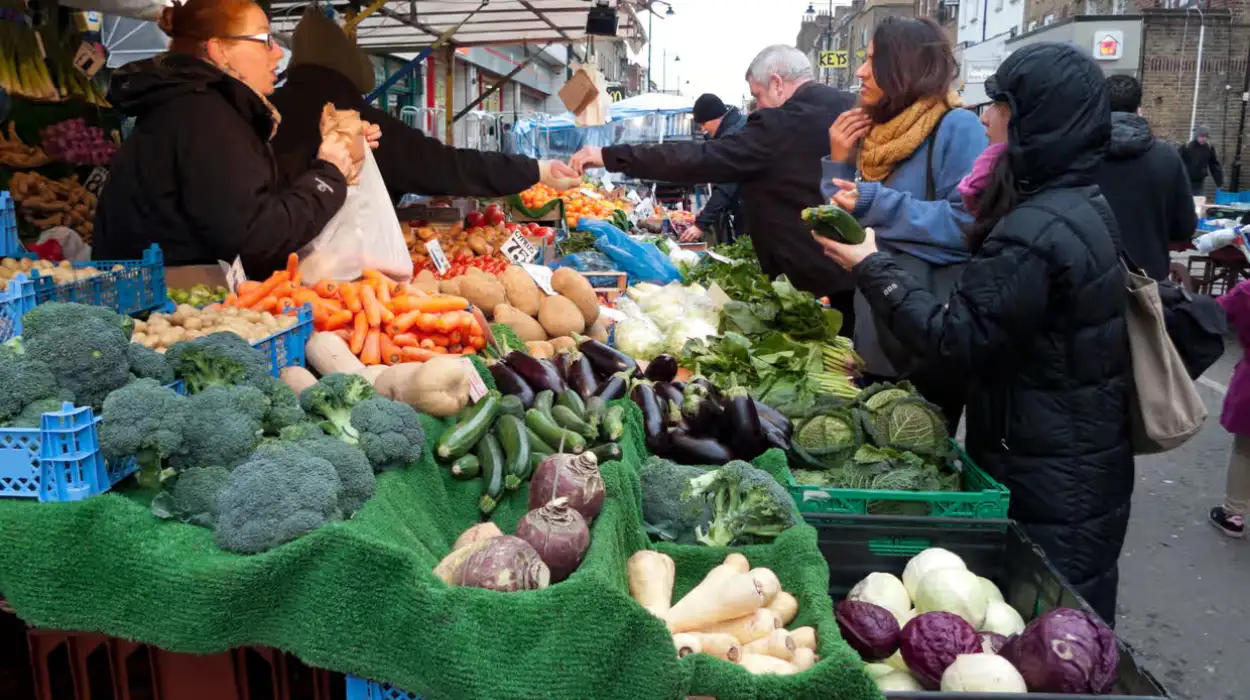UK (Parliament Politics Magazine) – The UK sees an early surge in fruit and veg harvests, with warm weather closing the “hungry gap” and showing climate change’s effect on growing seasons.
As reported by The Guardian, early strawberries, aubergines, and tomatoes flood the UK market, with warm, dry conditions closing the “hungry gap,” growers report.
A dry and sunny spring is expected to lead to one of the hottest starts to May on record, with temperatures forecast to reach 30C this week.
What did Nick Haigh say about early crop surges at his farm?
According to Nick Haigh of the Community Farm south of Bristol, Mediterranean crops have ripened early, arriving two to three weeks ahead of expectations.
He said,
“It feels like it’s the middle of May already. We have loads and loads of crops right now, tomatoes, aubergines, cucumbers, peppers, they are all ready two or three weeks early. We are crazy busy already. We are feeling the push right now.”
In the past, this period has been called the “hungry gap” when winter vegetables are scarce and summer crops have not yet arrived. However, the dry, sunny weather has erased this gap, according to him.
Mr Haigh added,
“A few months ago we thought it would be the worst hungry gap ever, now we are saying there is not going to be a hungry gap. We got really poor harvests last year, – we didn’t get very much squash, for example – so we didn’t have the storage vegetables that would usually get us through the hungry gap. Last year was awful, it was completely wet.”
He said,
“You just can’t predict the climate anymore. What might be your predictable dates you might plant things by just don’t work anymore,” adding, “We are having to try to be more adaptable to different techniques based on the climate. It’s keeping us on our toes for sure. Some rain would be great though, we are looking at the weather waiting for the rain.”
What did Hélèna Dove say about early strawberry harvests at Kew Gardens?
The Kew Gardens research facility in south-west London has reported an unexpected spike in the early appearance of berries.
Hélèna Dove, the head of the kitchen garden at Kew, stated,
“The recent warm weather is really showing how much our growing seasons are shifting. Traditionally, a good kitchen gardener would be proud to have ripe strawberries by Wimbledon as it would demonstrate their skill and expertise. We already have ripe strawberries in the kitchen garden at Kew Gardens, and it’s only April.”
According to her, gardeners were testing the viability of stone and tropical fruits, which are not typically suited to the UK’s mild weather.
She said,
“The warm spring means crops like citrus, kiwi, and tropical plants are thriving earlier, with longer seasons and better yields. We’re even growing peaches, apricots, and nectarines outside currently, something that would have been unthinkable in previous years due to the risk of late frosts and lack of early pollinators.”
What did Dale Robinson say about this year’s growing season?
Dale Robinson, chair of the supply chain at Riverford, an organic vegetable box company, said,
“This spring has been one of the warmest many of us can remember, bringing a real sense of joy and hope to our fields. Crops like purple-sprouting broccoli and wild garlic have thrived, and the early warmth has allowed for the timely planting of main crops. It’s a welcome change from the delays caused by last year’s wet winter – the wettest on record.”
He added,
“While we celebrate these favourable conditions, our growers remain mindful of the increasing unpredictability brought about by climate change. The real challenge lies not in the gradual shifts, but in the erratic weather extremes – sudden frosts, hailstorms, droughts – all of which can undo months of hard work in a single day.”
What is the Hungry Gap?
- A seasonal period from March to May in the UK.
- Marks a shortfall in fresh, local vegetables.
- Happens after winter crops end and before summer crops begin.
- Affects organic and seasonal growers the most.
- Often leads to reliance on imported or stored produce.

